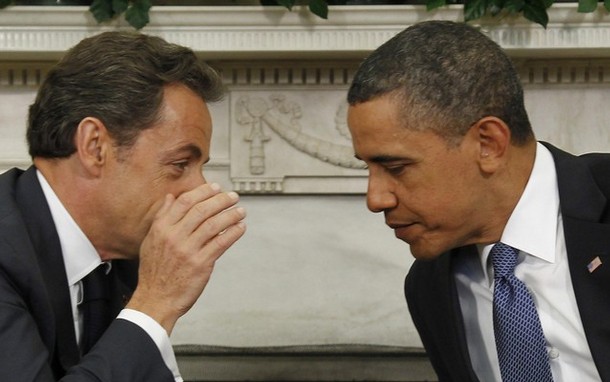
From Bruno Tertrais, WMD Junction: In late May, the Washington, DC-based Woodrow Wilson International Center for Scholars published an important dossier entitled "US Secret Assistance to the French Nuclear Program, 1969-1975: From ‘Fourth Country’ to Strategic Partner," with scholar William Burr of the National Security Archive providing a contextual analysis of more than fifty recently declassified documents. . . .
The documents in the dossier pinpoint 1970 as the turning point at which President Richard M. Nixon made a strategic decision to help France. The documents also confirm, on the US side, the procedure known as "negative guidance" (a technique mentioned in 1991 in former President Valéry Giscard d’Estaing’s memoirs) that was used by Washington in its cooperation with France to avoid contravening US law. The documents suggest that the United Kingdom was kept apprised of the US-French cooperation despite an apparent promise to the contrary made to Paris. And they reveal that the transition from atmospheric testing to underground testing had been a key topic of conversation between the two countries. . . .
The reason why the scope and depth of US-French nuclear cooperation stayed secret for so long is that both countries were, in a sense, stretching the limits of their respective national strategic paradigms or narratives: nuclear nonproliferation for the United States, and nuclear independence for France. An additional reason for the secrecy is that, regarding the strictly nuclear part of the relationship, Washington may have, on some issues, violated the spirit—if not at times the letter—of US domestic law (e.g., the Atomic Energy Act).
However, US-French nuclear cooperation did not really amount to secretly running a policy that was the opposite of the public stance taken by both governments. France was already a nuclear power, acknowledged as such by the Treaty on the Non-Proliferation of Nuclear Weapons (NPT), and—after de Gaulle’s departure from power in 1969—had a fairly good relationship with the United States. In 1974, the North Atlantic Treaty Organization (NATO) recognized the French deterrent’s contribution to the security of the Atlantic Alliance, and there were discreet consultations with NATO about the conditions under which a war in Europe could become nuclear. From what is publicly known, Washington never provided a warhead design or anything of the sort that France would not have been able to develop on its own. And what is known about US-French cooperation does not change the fact that Paris remained more independent from a technical, industrial, and operational point of view than London ever was. (photo: Reuters) (via Real Clear World)
Image: reuters%204%209%2011%20Nicolas%20Sarkozy%20Barack%20Obama.jpg
